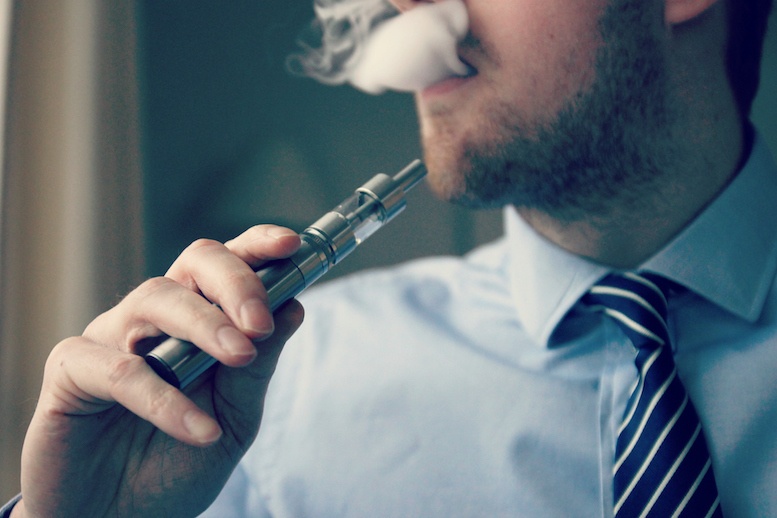A California cannabis group has called for legislators to close loopholes in federal laws to avert a “public health disaster” caused by widely available delta-8 THC and other potentially intoxicating cannabinoid products it says are illegal and frequently adulterated.
In a recently released white paper, “Pandora’s Box: The Dangers of a National, Unregulated, Hemp-Derived Intoxicating Cannabinoid Market,” the California Cannabis Industry Association (CCIA) said Congress should establish a single federal regulatory framework that oversees both hemp- and cannabis-derived cannabinoid products for human consumption.
Unregulated sales
Alternatively, “absent a single federally regulated cannabinoid market . . ., the Farm Bill urgently needs to be amended to close the loophole allowing the unregulated sale of concentrated, intoxicating, and/or synthesized cannabinoids,” the paper urges. The next U.S. Farm Bill will be written in 2023 to take effect in 2024.
Lesser known than delta-9 THC most commonly derived from marijuana plants, delta-8 THC naturally occurs in marijuana and hemp but only in trace amounts. Producers, however, have been turning out products with higher concentrations of delta-8 THC by putting hemp-derived CBD through a synthetic process.
Amid the drastically diminished fortunes of the CBD sector, where demand did not reach rosy expectations and oversupply caused prices to plunge by as much as 90% over the past two years, producers have turned to delta-8 THC production. Some analysts have estimated that at least 75% of the current supply of CBD is going into the production of unregulated delta-8 products.
Legal uncertainty
Delta-8 proponents were bolstered by a court ruling last May which held that a strict reading of the 2018 Farm Bill’s definition of hemp “expressly applies to ‘all’ . . . downstream products so long as they do not cross the 0.3 percent threshold for delta-9 THC.” Advocates say that makes the delta-8 compound a legal derivative of legal hemp.
Regulators and even some hemp stakeholders have pushed back against delta-8, suggesting the 2018 Farm Bill, which legalized hemp federally, never intended it to be used for products that can be classified as psychoactive, and because delta-8 THC is not derived from the hemp plant in a natural manner.
Widespread problem
In the absence of federal rules, states all over the USA are grappling with delta-8 THC. Some states have outlawed the compound altogether while others are treating it under rules for products that carry delta-9 THC.
Noting that delta-8 products are not regulated, go uninspected, and are unapproved for human and animal consumption, the U.S. Food and Drug Administration (FDA) last May warned five companies over the illegal sale of products containing delta-8. A Virginia mother was indicted in November in the death of her four-year-old son which was attributed to over-ingestion of hemp-derived delta-8 THC from gummies.
Widely available
The strict definition of hemp in the current Farm Bill is “being exploited by ‘hemp’ product manufacturers to sell extremely potent, often chemically synthesized intoxicants that are more powerful than anything available in licensed cannabis dispensaries,” according to the paper, written by Tiffany Devitt, CCIA Board Vice President and chief of regulatory affairs at CannaCraft, a Santa Rosa-based marijuana producer.
“Intoxicating, unregulated hemp products are all too often rife with contaminants, inaccurately labeled, and brazenly marketed to children,” according to the white paper.
“Many of these so-called hemp THC and THC-like products are sold online and in convenience stores, gas stations, and smoke shops without age gates, testing standards, packaging and labeling requirements, marketing limitations, or even a proper understanding of their potential effects on consumers,” the paper observes. “It’s a public health disaster.”
The paper cites a number of studies that reported impurities in delta-8, and related dangers in vaping, including unlabeled adulterants, byproducts of chemical synthesis and heavy metals.
Call for enforcement
CCIA also called on California officials to enforce existing state laws that prohibit intoxicating cannabinoids in hemp products, whether naturally derived or synthetic.
The state should “immediately enforce prohibitions against selling intoxicating cannabinoids (whether “hemp-” or cannabis-derived) outside the regulated cannabis market where extensive consumer protections already exist,” the paper suggests.
In addition to delta-8, “approval of novel cannabinoids, like THC-O, THC-P, HHC and others, rightfully falls under the purview of the U.S. Food and Drug Administration,” the paper observes.

